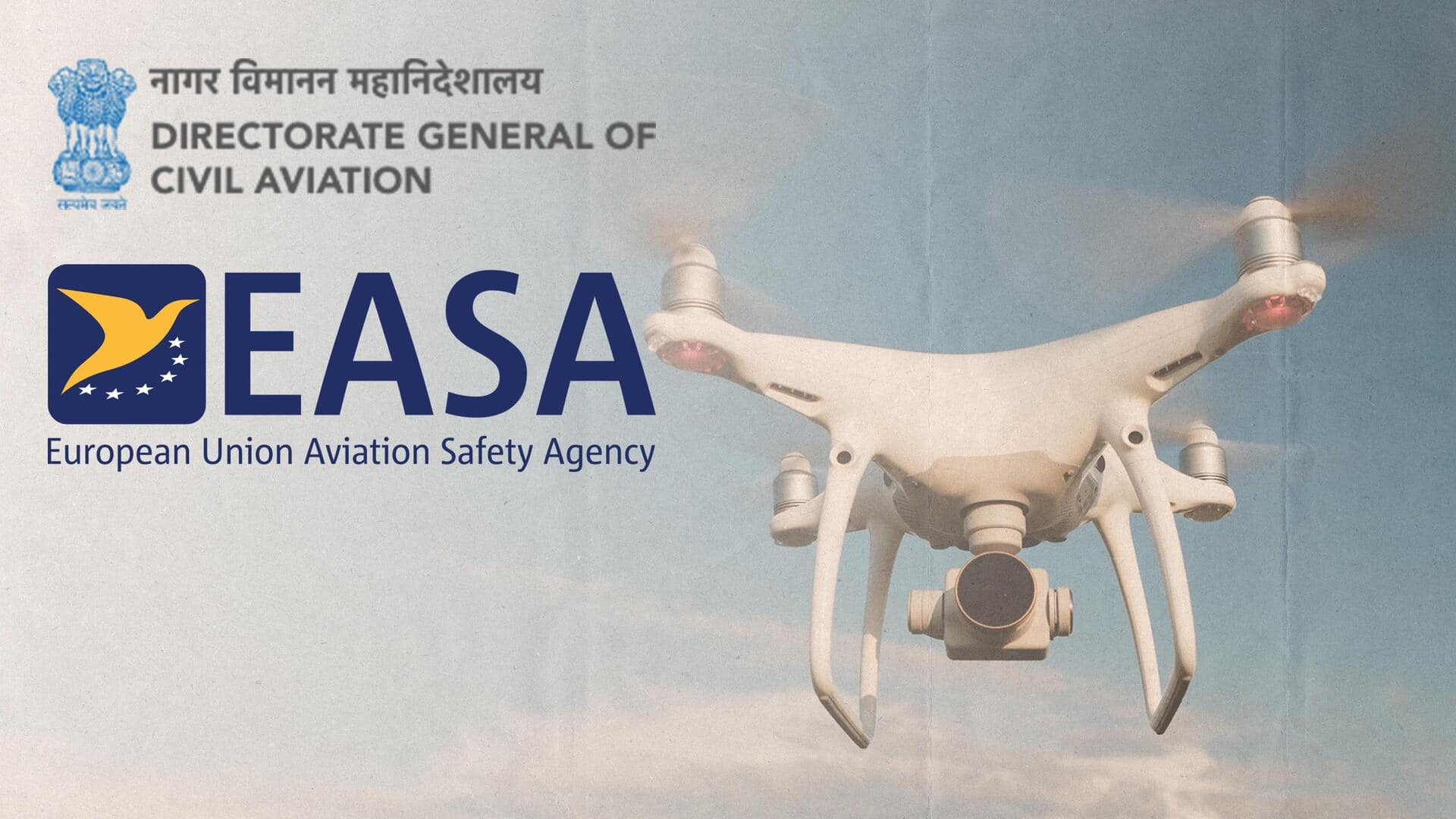
DGCA, EU aviation agency to collaborate on unmanned aircraft system
What's the story
Indian aviation regulator, the Directorate General of Civil Aviation (DGCA), has signed a memorandum of understanding (MoU) with the European Union Aviation Safety Agency (EASA) for cooperation in unmanned aircraft systems and innovative air mobility.
The bodies will collaborate on the development of certification standards and environmental standards.
Per reports, this move is a step toward employing air taxis for urban mobility.
Statement
Framework for traffic management of unmanned aircraft
Reportedly, the DGCA is looking at developing a framework of rules, including for air traffic management.
The innovative air mobility operations in the MoU entail training and licensing of personnel, along with devising Unmanned Aircraft System Traffic Management (UTM) standards and services.
In April, India hosted the European Union (EU)-India Aviation Summit, where the two bodies signed a letter of intent for the same.
Details
DGCA, EASA will conduct joint workshops, conferences
As per the agreement, the DGCA and EASA will regularly share information regarding the technological developments and research in this area, along with strategies for outreach to relevant stakeholders.
Both bodies may also jointly conduct conferences, workshops, and training programs.
The MoU is expected to catalyze the growth of the Indian unmanned aviation sector, the DGCA said.
Scindia
'Indian drone industry to generate 3 lakh jobs by 2030'
Union Civil Aviation Minister Jyotiraditya Scindia said earlier this year that the Indian drone industry's valuation could surge to Rs. 3 lakh crore by 2030 and generate employment for at least 3 lakh people.
In an interview with the Deccan Herald last month, Drone Federation of India president Smit Shah stressed the importance of certification for boosting the country's drone sector.
Industry
Industry players encouraged by government policy
Shah said the government took certain positive steps that have made industry players hopeful of growth.
These steps include the production-linked incentive scheme with an outlay of Rs. 120 crore and the prohibition on importing drones—binding the system to create intellectual property (IP) locally.
He said the government is the sector's biggest customer and, hence, the market maker.